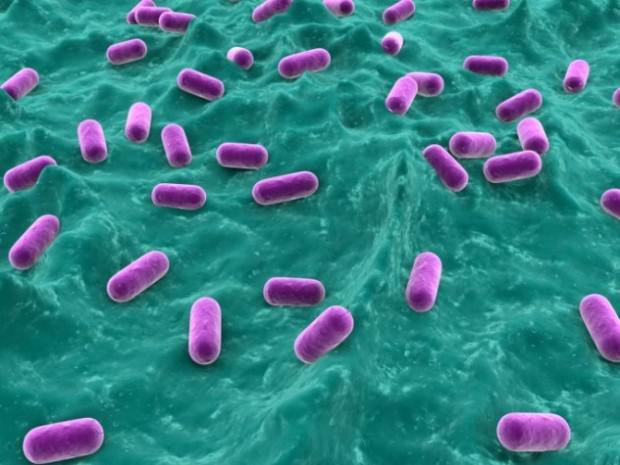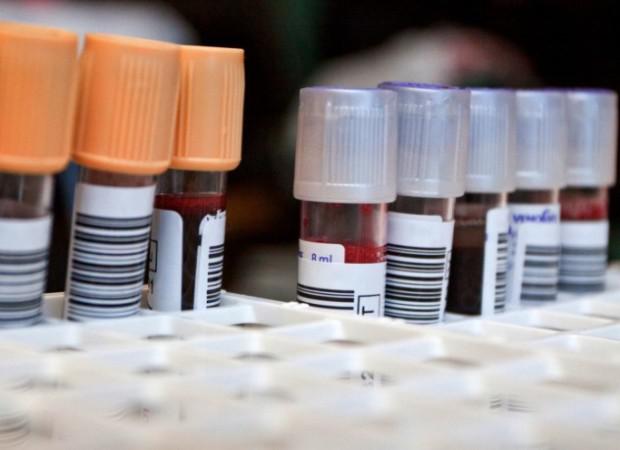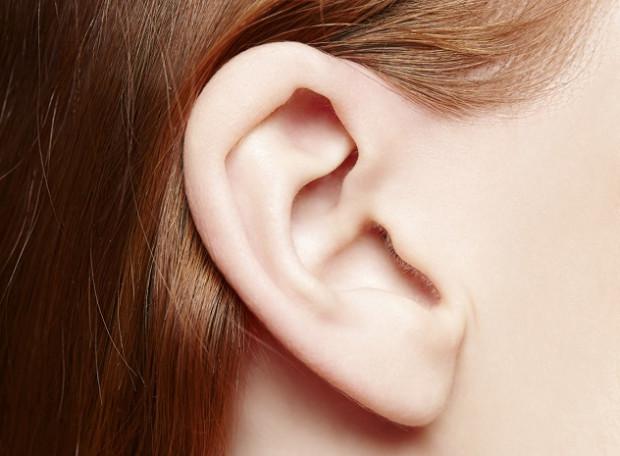Mysteries of the human body
 Bashny.Net
Bashny.Net

1. Why do we have fingerprints?
Despite the obvious benefits of fingerprints (for example, they help to establish the identity of the person), science actually knows nothing about their natural functions. Some scientists have developed complex computer models to understand how impressions are formed, and although we now know about it, what evolution has given them to us, it is not known anything.
Perhaps researchers will soon be able to solve this riddle. In the world there are few families with a strange genetic disorder called adermatoglifiya - these people have no fingerprints. In addition, they are much less sweat, and at the same time they are so healthy as everyone else. The researchers hope that the study of these families and their genome will help unravel the mystery of evolutionary fingerprint.

2. How do probiotics?
If you've ever seen an advertisement yogurt, you may have heard the word "probiotics" or "live bacteria." Many of the advertised yoghurt manufacturers claim that their product contains live probiotic cultures that are beneficial for health in general. It sounds as if the producers of yogurt have opened something new, but science has long known that probiotics are a type of beneficial bacteria living in the human gut. And, oddly enough, the producers of yogurt do not say exactly what these live cultures do good for health.
Nobody says anything substantial in the first place because no one knows how the probiotics. In fact, many probiotics that are used as food additives, or added to foods used because their shelf life, and not because they are good for health. Of course, there is no harm from them, but scientists are just beginning to learn exactly what the health benefits of each type of bacteria produce.
Researchers believe that if they can determine the impact of all the beneficial bacteria in the body, it will be able to answer the other questions, in particular, to learn a lot about the treatment of various diseases. True, certain clues will leave a lot of time, because in the world there are hundreds of species of probiotic bacteria.

3. Why do we have different blood groups?
You probably know that there are four major blood groups, and if you've ever passed a blood test, you know what blood type you have. It's a pretty important thing, because the blood is not one group can destroy you if you suddenly have to make a serious operation.
Since blood group first appeared 20 million years ago, we had a lot of time to learn about them, though, of course, studies began much later. We are well aware of the principles of the blood groups, but still have no idea why they are different and why this is necessary from the point of view of evolution.
Blood group antigens are classified according to blood cells. These antigens represent signals antibodies that destroy foreign cells in the body. Antibodies perfectly "in contact" with the antigens of the correct type, but attacking other antigens, resulting in the wrong type of blood transfusion or organ transplantation that may be fatal.
Yes, science knows about blood a lot, but not as many questions still remain unanswered. For example, we have no idea why we need these antigens. We can assume that they have some relation to diseases and immunity, as evidenced by some interesting findings.
For example, scientists have found that people with a third group of blood more susceptible to E. coli, and those who does not belong to the group system Duffy, have almost complete immunity to a form of malaria. Although the causes of the appearance of blood groups is impossible to say, but it is believed that they appeared as a way of combating infectious diseases.

4. Does the brain remains active after decapitation?
There are many legends about how people beheaded within a few minutes after the horrific death remain conscious. In some stories a person blinks or commit other traffic to show that everything is perfectly aware. It sounds like a horror story for children, but in reality we do not know how long the brain can remain active in this situation and can do.
Research is difficult to carry out in the first place because just take and behead human scientists can not. The only real opportunity for data collection existed in France before and after the revolution, when the primary method of execution was the guillotine - then there have been several experiments, but only one of them documented.
The case described by Dr. Gabriel Borough: eyes on the severed head of a man open for a short time to focus on a certain point before the close forever. The doctor came to the conclusion that some of the functions will remain active for almost 30 seconds after the beheading, but he could not determine whether a person is saved consciousness.

5. Do people have pheromones?
Animals, when it comes to reproduction, rely on the smell of pheromones partner. Because of this, researchers are trying to figure out whether pheromones play a role in human interaction. The more responses we get, the more entangled. Many studies have shown that odors affect on people certainly, but with pheromones is a little more complicated.
For a long time, scientists were not sure whether the people special olfactory organ like the one used for the detection of animal pheromones. However, we have this, but it is very small and undeveloped, so it is unclear if it works at all.
According to the study, all people have their own unique smell, which we owe to their genome. For example, newborn babies can recognize the smell of their mothers, and if women regularly feel the smell of each other, their menstrual cycle can be synchronized. Obviously, to learn about the human sense of smell is still much needed.

6. What happens when someone is struck by lightning?
If you've ever been away from home during the storm, especially in the vicinity of metal, you probably thought that you may be struck by lightning. It's quite a daunting prospect: after a lightning strike may have permanent brain damage is very severe burns and can even die. Despite how it all sounds horribly, most victims survive. Some even remain completely intact, and the science has no idea why.
To find out what was happening, the researchers went to South Africa, where a thunderstorm with lightning occur more frequently and are stronger than anywhere else in the world was. They found that the particular way zipper passes through our body. They decided that this has to do with the incredible electric charge that passes through a person in a short period of time. However, many questions remain unanswered, and the more we know, the more victims could be saved.

7. As a woman may not know she was pregnant?
Agree, it seems doubtful: she claims that was very surprised when he suddenly had a baby. All the nine months she lived a normal life and completely suspected nothing, but that's - the child was born. This does occur, though very rarely, so studying this phenomenon is very difficult.
One of the reasons that a woman may not know she is pregnant - is overweight, which in turn means that it can gain more and more weight, so that the extra weight of the baby and not notice.
It seems to be worth thinking about a very serious violation of the menstrual cycle, but many women, especially those who are overweight, the cycles are irregular, and that there is no menstruation for many months in a row, they basically normal. In addition, in some women during pregnancy are small regular bleeding, which can be mistaken for menstruation.
However, sometimes it happens with perfectly healthy women. One patient of Dr. Sabrina Suchan - a case in point. This woman had a normal weight, she even worked in the medical field, so I knew all the signs of pregnancy, but had no idea that she was pregnant until birth. Doctors still can not understand how this is possible.
8. How do the mitochondria?
Mitochondria are an essential part of our body. The sole purpose of the microscopic organelles - to turn us all consumed food into energy. For a long time we did not know about the mitochondria is almost nothing but science is close to an understanding of how they work.
More recently, scientists have learned how mitochondrial energy transfer. Also, scientists have learned that mitochondria really like calcium, which can sometimes cause problems if the mitochondria absorb too much calcium, it can kill cells. This is associated with diseases such as diabetes of the second type.
Researchers believe that these diseases affect the signaling process by which the body tells the mitochondria, how much calcium is absorbed and how much - to output. A team of researchers from Harvard have recently managed to catalog each protein in the mitochondria, including all of the proteins associated with the absorption of calcium. So far, little information, but this mystery we are about can solve.

9. Why the ear consists of three stones?
We used to hear sounds. How it works in principle is clear. If the ears are not subjected to strong deformation, then they perform their function very well, and special care is not required. But not all the same kinds of ears. Stanford researcher Sunil Puria noted that the reptiles and birds ear consists of two bones, and mammals - they are three. Why is unknown.
According to Puria, we hear several ways. The first method is obvious - through our ears, the sound passes. But still we hear when vibration from the movement of our vocal cords pass through the bones of our skull. When you speak, you hear your own voice as it is heard all the others. This explains why we are so obnoxious own voice, if we hear from them - for example, audio or video.
The best theory Puria why our ears are made up of three bones, based on a strange disease called Syndrome baring front semicircular canal. This disease can lead to a decrease in tissue in the ear canal, resulting in people hear other sounds which are generally not perceived like own heart beats. Puria suggests that perhaps a third ear bone is needed in order to reduce these effects to a minimum, but detailed studies are required.

10. What kind of bacteria live in our language?
It would seem that the human mouth is certainly not contain any secrets, we know what the teeth and how they work, understand what is the gums, and know a lot about the taste buds. A language at first glance have nothing to hide at all, but in fact the language - it's just a storehouse of secrets.
Doctors all over the world would get to study the bacteria living on the tongue, to study them as detailed as possible and thus save lives. However, most of our languages bacteria do not grow in a petri dish, so to classify and understand them very difficult.
This lack of understanding - the biggest stumbling block in the treatment of gum disease such as periodontitis. Doctors do not know really how to treat because bacteria, because of which there is periodontitis, a lot, and we know too little about them.
Recently, researchers still managed to grow one bacterium from the oral cavity by DNA and they hope that this will allow a better understanding of how to deal with diseases of the oral cavity. However, too much bacteria, and yet many of the microorganisms that live in our mouth, remain a mystery.
©
Tags
See also
Mysteries of the human body which were not disclosed by scientists to this day
Awesome about the proportions of the human body
100 weird and interesting facts about the human body
98 most interesting facts about the human body
A selection of interesting facts about the human body
10 important questions about the human body that we still don't know the answer
Crannies of the body and reflexes
The miracle of the human body
Museum of the human body
















